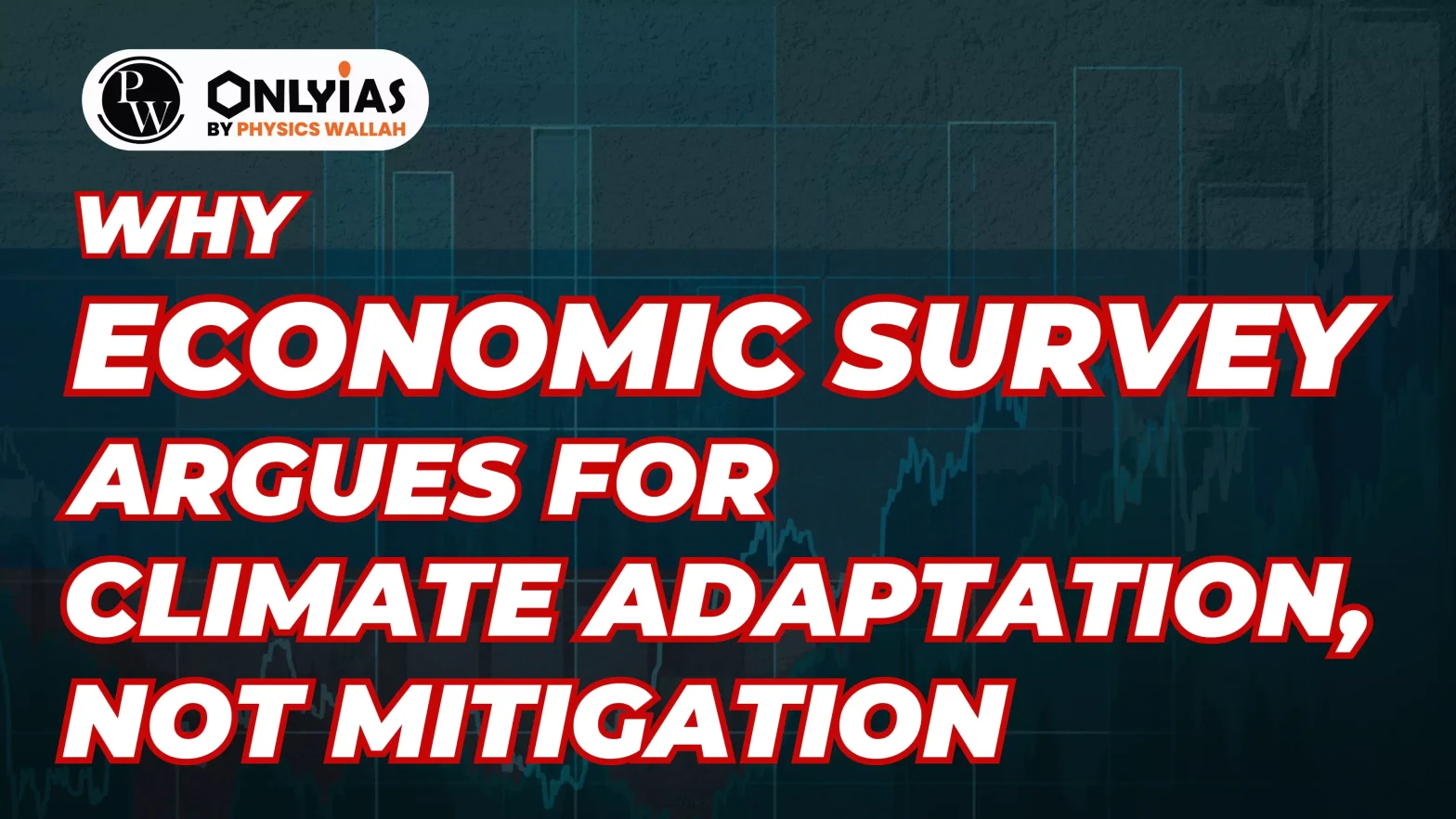The Economic Survey has pointed to flaws and inequities in the global climate action regime, and suggested alternative pathways that incorporate lifestyle and behavioural changes.
Economic Survey on Climate Change
- Focus on System Flaws and Inequities: Two chapters on climate change highlights flaws and inequities in the current system and suggests alternative pathways for reducing greenhouse gas emissions.
- Lifestyle and Behavioural Changes: Emphasizes the importance of lifestyle and behavioural changes and proposes incorporating these changes to mitigate climate impact.
- Critique of Temperature Targets: Notes “excessive preoccupation” with 1.5- or 2-degree Celsius targets. Argues this pressure is unrealistic for developing countries.
Enroll now for UPSC Online Course
Global Climate Action Framework
- Effectiveness Issues:
- Consistent failure to meet set targets.
- Inequitable system favoring developed nations.
- Developed vs Developing Countries Debate:
- Historical responsibility of developed nations (e.g., US).
- Unfulfilled commitments by developed countries a. Emission reduction targets b. Financial and technological support.
International Climate Architecture
- Critique:
- Perpetuation of existing world order.
- Favoring industrialized nations’ interests
- Evolution of Climate Agreements:
- Kyoto Protocol: More equitable approach.
- Paris Agreement: Shift in global climate strategy.
- Role of Scientific Bodies:
- Intergovernmental Panel on Climate Change (IPCC): Alignment with developed countries’ narrative. Bias in climate scenarios and models.
India’s Climate Strategy
- Infrastructure Development:
- Potential for climate-resilient infrastructure.
- Challenges in implementation:
- Mission Life:
- Focus on lifestyle and behavioral changes.
- Current status: Yet to become a mass movement.
Economic Survey Implications
- Possible Policy Shifts:
- Potential change in India’s energy transition approach.
- Call for effective action post-criticism of established order.
Check Out UPSC CSE Books From PW Store
Conclusion
The Economic Survey underscores systemic flaws and inequities in global climate action, urging lifestyle changes and equitable policies for a resilient, sustainable future.
![]() 25 Jul 2024
25 Jul 2024
